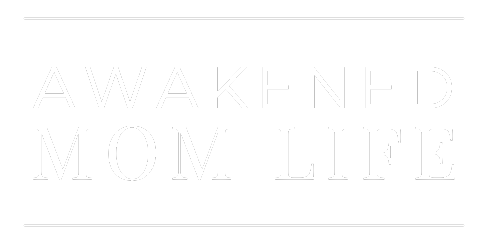In the sacred journey of healing from childhood trauma, we often find solace and support within communities that share similar experiences. Maybe it’s a Facebook Group, Instagram community, support group, etc.
Here’s what you’ve never been told…
I’ve been a member of numerous online support groups and communities dedicated to healing. Unfortunately, there is a problematic reality: some people who believe they are on a healing journey have transformed into oblivious abusers.
- Dismissiveness – showing little consideration for you
- Gaslighting – attempting to get you to doubt your perceptions
- Victim-Blaming – they imply in any way/shape/form that you, as a victim, were responsible for the harm you experienced
- Abuse – demeaning, attacking, or insulting language
These individuals, yes, victims of abuse themselves—instead of ending the cycle of abuse, they are perpetuating the problem in support groups where we expect to feel a little safer. This adds complexity to the healing journey for those genuinely seeking to break free from toxic relationship dynamics. Frankly, it feels confusing because you assume it’s a safe, supportive group space—yet here’s that all too familiar feeling of toxicity.
I’ve had several of these encounters, but it took me until now to really understand and put it into words.
I recently had a situation where a woman attacked me in an online support group, thinking I was involved in a conversation with her. But it was actually my teammate who was talking to her. She commented negatively about me without realizing I wasn’t part of the discussion.
It really led me to think about this more. But why? I wanted to help warn other women about this personality type. I don’t want them to make the same mistake I did the first time this happened: shutting down and pulling away.

As we heal from trauma, we experience a period of naivety. We may believe that once we have people (therapists, doctors, coaches, teachers, friends, etc.) in the healing space, they are good, decent, and honest people.
Unfortunately, I’ve learned this is not reality.
The sooner you understand that not everyone is going to be a safe person in the support group community, the less heartache you’ll endure. This is not a negative thing; it’s about honesty without selves and embracing true human nature. Plus, it allows you to use discernment to know when to trust and safeguard your peace.
In the early stages of my healing journey, I approached interactions in online support groups with an eagerness to share my vulnerabilities, assuming everyone else was on a similar wavelength. However, I quickly realized that my assumption was far from accurate.
Unmasking the Deception
The woman I mentioned above in the conversation online claimed to be on a healing path, and she very clearly was disrespectful, dismissive, and outright aggressive. Under the guise of brutal honesty, she inflicts emotional wounds, leaving those around her questioning their own worth. It was triggering for me, and it’s a group that I run!
I share this because I want you to recognize this behavior in any type of support group you participate in. It’s essential to recognize that this behavior is not genuine honesty; it’s a manipulation tactic, a form of gaslighting designed to mask abusive tendencies.
Understanding the Dynamics: Signs of Borderline Personality Disorder
It’s important to note that some people who have experienced trauma may develop Borderline Personality Disorder (BPD). Signs of grandiosity and a victim mindset may indicate a struggle with BPD. It’s crucial to recognize that not everyone healing from trauma follows the same path.
While some become empowered survivors, others may unintentionally take on the role of a victim-turned-abuser, perpetuating a cycle of harm.
Three Paths, Three Destinies for Trauma Survivors
In reflecting on this disheartening encounter, it becomes apparent that individuals healing from childhood trauma often navigate one of three distinct paths into adulthood.
- Remaining in Victim Mode: Some may linger in the victim role, becoming inadvertent doormats, playing small and allowing others to dictate their lives.
- Becoming a Victim-Perpetrator: Others, grappling with the aftermath of trauma, may inadvertently perpetuate abuse, utilizing their victimhood as a justification for harmful behavior, often culminating in a diagnosis of BPD.
- Choosing Empowerment and Healing: The third path is one of strength and resilience. It involves taking ownership of the healing journey, acknowledging past victimization but refusing to perpetuate harm. Those on this path are respectful to others, breaking free from the cycle of trauma.
Empowering Others to Recognize and Rise Above in Healing Support Groups
It’s essential to raise awareness about these divergent paths and equip individuals with the tools to recognize abusive behavior masquerading as tough love. In the healing community and support groups, where vulnerability is celebrated, it’s crucial to discern between genuine support and destructive manipulation.
Let this be a call to action – an awakening to the fact that our healing spaces and support groups should never tolerate abuse. By understanding these dynamics and recognizing the signs, we empower ourselves and others to foster communities built on genuine support, empathy, and authentic healing. Together, let’s break free from the chains of the past and forge a path towards empowerment and resilience.
Want a safe and trauma-informed community?
I invite you to come hang out with me in the Women’s Healing Collective.














